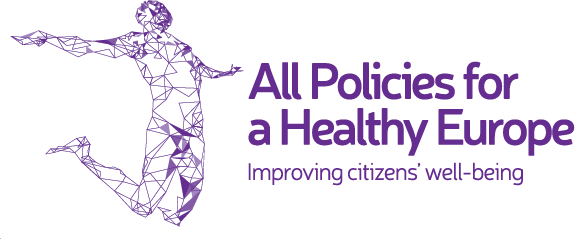Our answer to Europe’s Beating Cancer Plan public consultation
- 11 Jun 2020
- News
The European recovery from the COVID-19 pandemic makes the Health in All Policies approach ever more urgent
2’1 What do you think citizens can do to help beat cancer?
Citizens have a decisive role to play on prevention. They can reduce the risk of getting cancer by promoting healthier lifestyles (e.g. physical activity) and protecting the environment (e.g. pollution reduction). Citizens are also essential to ensure effective screening and early diagnosis. The EU can support them by engaging on practical aspects of their lives (e.g. awareness raising on risk factors). By accompanying the shift from an illness system to a well-being system, where the maintenance of good health is the primary focus, the EU would powerfully demonstrate its value to citizens. (597 characters)
2’2 What do you think health professionals can do to help beat cancer?
The recent health crisis highlights the key role of all health professionals. Supporting health workers in their fight against cancer requires cross-cutting policies, including leveraging digitalization for improving treatment, multidisciplinary cancer care and efficiency in health systems. The sustainability of the health workforce also requires a focus on the Future of Work, well-being at work and mental health. Health workers should have the opportunity to build up their capacity to accompany patients. This is only achievable through an efficient health system that cares for its workforce. (600 characters)
2’3 What do you think public authorities/national governments can do to help beat cancer?
At national and local level, governments should boost prevention and the promotion of healthy lifestyles through cross-sectoral action, such as enhancing research and public awareness on environmental determinants. Innovative digital solutions can also help improving citizens’ health literacy. A European Health Data Space should be rapidly created to help promote health-data exchanges, a value-based approach to health, and allow a research environment fit for innovation. The EU should also support MS by benchmarking and harmonizing national policies, as well as assessing their effectiveness. (599 characters)
3. Do you support the idea that the EU should do more to address cancer?
YES
8. What could Europe do to ensure that cancer patients across Europe receive the best available treatment at an affordable price, independently of where they live?
Socially disadvantaged citizens face higher rates of cancer and are exposed to poorer access to healthcare. To tackle the socio-economic dimension of cancer and ensure that all patients receive the best possible care, the EU should encourage innovation, focus on access to vaccination & early diagnosis, and engage directly with cancer patients and their representatives on treatments. Teleconsultation & digital health could improve access to care in some underserved areas. A systemic approach to prevention will also reduce spending and enable greater financial sustainability for health systems. (600 characters)
15. Do you consider that cancer survivors experience significant challenges in their daily life?
YES
17. Do you know or have experience of any particularly good practice in supporting cancer survivors, or do you have any suggestions as to how this could be done?
Cancer survivors and their families face multi-dimensional challenges including comorbidities, mental health and socio-economic reinsertion. Their insertion should be facilitated through flexible work arrangements, access to skills building, and the right to be forgotten as defended by the European Pillar of Social rights. Helping cancer survivors requires action across EU policies, including on the Future of Work and on the prevention and diagnosis of other diseases (e.g. obesity, depression). Beyond healthcare, cancer survivors need cross-sectoral action to improve their quality of life. (600 characters)
18. Tell us what a successful cancer plan means to you. 10 years after we implement the plan, what should have improved in the lives of European citizens?
Turning the Cancer Plan into a success means improving the lives of all citizens affected by cancer. It also means decreasing its prevalence thanks to sustainable and efficient health systems, as well as effective prevention and health promotion measures. A comprehensive Plan ensures the sharing of best practices, provides effective guidelines and enables cross-sectoral partnership along the continuum of care. The Plan should thus illustrate the EU’s health in all policies approach and address policies including environmental protection, digital health and an economy that works for people. (597 characters)
21. How can you (or your organisation) contribute to the EU plan on cancer?
Our mission is to put citizens’ health & well-being at the centre of all areas of EU policy-making. The EU should respond to the needs and concerns of its citizens by embracing the paradigm shift towards an Economy of Well-Being, going beyond a sole focus on disease management in health policies. This also means monitoring and measuring well-being metrics across policy areas to develop targeted measures. We are eager to collaborate with the EU to ensure that the Cancer Plan develops a cross-sectoral approach taking the multi-dimensional determinants of health & well-being into account. (593 characters)
22. Is there anything else that you would like to add that has not been covered in this consultation?
We believe actions to improve the well-being of citizens, including the Cancer Plan, are a powerful opportunity to demonstrate the positive impact of the EU. We support the holistic, multi-sectoral and multi-stakeholder approach set out by the EU to beat cancer. To further develop a horizontal approach based on cross-sectoral collaboration between policy areas, we call for the establishment of an EU Charter on Health & Well-being to introduce common principles and effectively assess the impact of EU policies on the quality of people’s lives, in all fields and with a long-term perspective. (595 characters)
Download our response to the public consultation.

